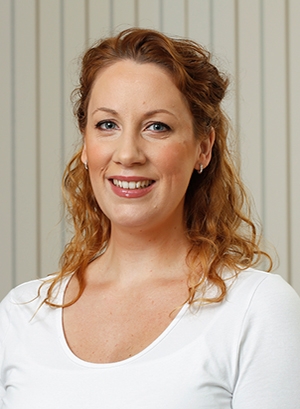Psychology
Psychology therapy allows you to consult with someone who has specialist knowledge and training in the area you may be struggling and needing assistance. Generally, it is a very helpful process to get things ‘off your chest’ with someone who will not judge and who may be able to offer some useful insights.
You may require therapy for various psychological disorders including Depression, Anxiety, Addiction, Post-traumatic Stress Disorder, Psychotic illness, and Personality disorder. These disorders, as well as a raft of others, are diagnosable based on a cluster of symptoms that have a degree of impact on functioning and are generally experienced as a single episode or a more chronic health issue.
To answer more of your questions about psychology visit FAQ here
Meet our Psychologist

Natasha Grabham (Psychologist) – Body of Life
Natasha is a warm and caring therapist who focuses on the whole-human experience and through an integrative approach, she draws from evidence-based modalities, while holding a developmental lens and openness to creativity and innovation for the best possible experience for her clients.
“My wish for my clients is that they can experience a safe and welcoming space to work on their goals, at their pace. Some people move through therapy quickly and have very clearly articulated goals, where others find the therapeutic relationship restorative for long-standing or complex difficulties, while others have some challenges in knowing what they want from therapy”.
Whatever the reason/need is for someone reaching out, Natasha is an experienced and well-rounded clinician who draws value in walking alongside and in support of others on their journey.
“I thoroughly enjoy the opportunity to truly connect, to challenge, to be real and to hold hope. It is a privilege to sit in uncertainty and discomfort with someone and work towards greater quality of life. It is also so rewarding to see someone get movement where they have felt stuck, feel heard on the unspoken, or to witness the growth of empowerment and capacity”.
Natasha’s work in psychology has seen her support defence personnel, veterans, emergency service workers and their families, as well as the general community, children and adolescents and their parents. She works with individuals and couples and has a specialty in occupational trauma, but also works with depression, anxiety and stress, loss & grief, self-esteem, personality disorders, interpersonal issues, and older age psychology. Natasha has experience in private practice and psychiatric settings, having previously managed the allied health department at a psychiatric hospital based in Sydney.
Today, in addition to her private practice work at Body of Life, she works as the Director of Programs and heads up the senior clinician team for a health and wellbeing non-for-profit for first responders and their families.
Natasha is a member of AAPI and holds registration as a Psychologist through AHPRA. She is a Medicare and DVA (Dept Vet Affairs) treatment provider and a contractor for Open Arms (veteran counselling service). She welcomes enquiries at natasha@bodyoflife.com.au or contact the clinic on 9453 3046.
To book an appointment with our Psychologist call 02 9453 3046
Frequently Asked Questions
How long will it take?
What will happen during the first visit?
What is a Psychologist?
The fields of Psychological application and expertise are diverse; however clinical therapy is the most widely recognised and accessed. Psychological interventions vary depending on the needs of a client, and also vary depending on the theoretical orientation/treatment preferences of the clinician. It is important when commencing therapy that you are able to have your questions answered about the evidence-based practices of your Psychologist.
What training do Pyschologists do?
Are Psychologists required to do ongoing training?
What is the difference between Psychologists and Psychiatrists?
Do you work with other health practitioners?
What if my Psychologist is not available between sessions?
What type of therapies do you use?
• Cognitive Behaviour Therapy
• Dialectical Behaviour Therapy
• Acceptance & Commitment Therapy
• Motivational Interviewing
• Psychodynamic Therapy
• Mindfulness
• Schema Therapy
• EMDR
• Narrative Therapy
• Psychodrama & Art
Do I need a referral?
What happens during a session?
Why do I need to find a Psychologist that is a good ‘fit’ for me?
How does payment work if I have been referred by my GP?
Will I find the sessions confronting?
Therapy can be confronting for some and perhaps seem tangential to the client’s perceived goal for treatment; however this may be the necessary work to ultimately reach your objective. You may at times feel challenged or misunderstood and as a result feel like disconnecting to therapy, but this may be the very moment just before insights are made and gains are experienced. Hang in there.
What if I feel uncomfortable?
Body of Life Health Centre is a provider of excellence in health services and education,
servicing the Northern Beaches and North Shore.
We exist to equip you to live your healthiest and best life. We are a multidisciplinary team of health practitioners that provide a range of services to you, your family and the local community.
Book in to see an Osteopath, Psychologist, Massage Therapist, Acupuncturist or Dr of Chinese Medicine with us because we can support you to make the changes you need to feel your best!

